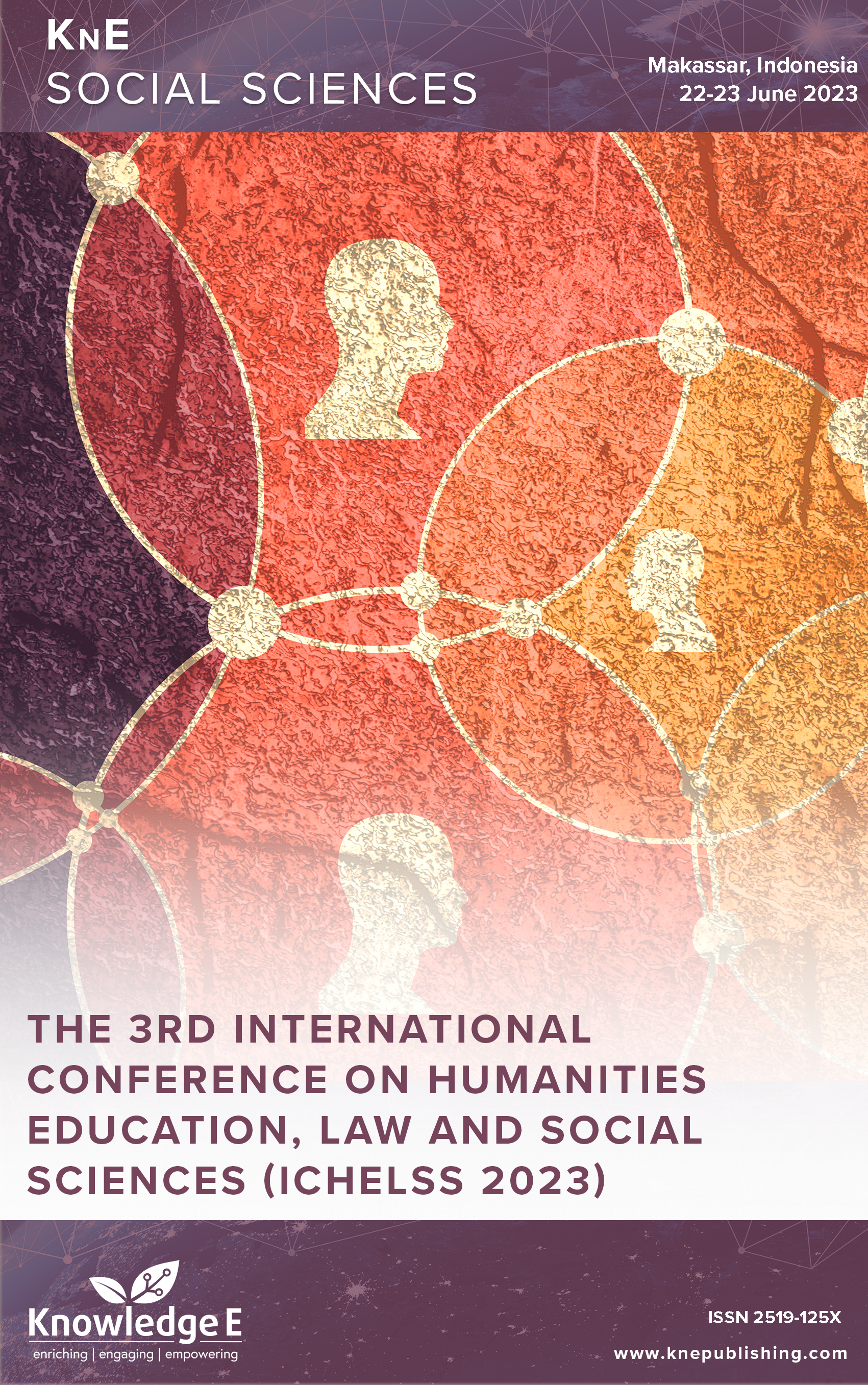The Mainstreaming of Egalitarian Pedagogy in Sociology Learning Process
DOI:
https://doi.org/10.18502/kss.v9i2.14845Abstract
The purpose of this study was to determine the practice of teaching sociology using an egalitarian pedagogy approach in the Practice of Field Experience (PPL) II of Teacher Professional Education Program (PPG) Pre-service at SMAN 1 Masbagik, East Lombok. The method of this research was qualitative research with a phenomenological approach. The subjects of this study were students of the PPL II of PPG Pre-service at SMAN 1 Masbagik, East Lombok. Data collection techniques were observation, interviews, and documentation, while the data analysis technique used was interpretative phenomenological analysis. In the practice of learning sociology at PPL II PPG Pre-service, students as professional teacher candidates applied innovative learning models such as discovery and inquiry learning, Project Based Learning (PjBL), Problem Based Learning (PBL), and Cooperative Learning. These learning models emphasize student-centered learning where students are encouraged to be active, independent, critical, creative, interactive, and collaborative. At this point, the practice of learning sociology prioritizes group discussions, problem solving through case studies and assignments (field studies). Besides applying innovative learning models, students from the Field Experience Practice (PPL) II PPG Pre-service also used an egalitarian pedagogical approach, namely sociology learning which was designed to be more fun and meaningful so as to create learning that is more humane, dialogical, and participatory. Learning here is interpreted as learning together so as to create an egalitarian relationship between the teacher and students in the classroom where the teacher acts more as a facilitator, motivator, and inspirer.
Keywords: pedagogy, egalitarianism, sociology, Teacher Professional Education (PPG)
References
Rahayu R, Iskandar S, Abidin Y. Inovasi pembelajaran abad 21 dan penerapannya di Indonesia. Jurnal Basicedu. 2022;6(2):2099–2104. DOI: https://doi.org/10.31004/basicedu.v6i2.2082
Shafiee NS, Ghani MA. The influence of teacher efficacy on 21st century pedagogy. International Journal of Learning, Teaching and Educational Research. 2022;21(1):217–230. DOI: https://doi.org/10.26803/ijlter.21.1.13
Kalsoom S, Kalsoom N, Mallick RJ. From banking model to critical pedagogy. UMT Education Review. 2020;3(1):25–44. DOI: https://doi.org/10.32350/uer.31.02
Stubbs CF, Hullinger H. Developing critical consciousness in students for cultural transformation. Journal of the Scholarship of Teaching and Learning for Christians in Higher Education. 2022;12(1):5. DOI: https://doi.org/10.31380/sotlched.12.1.9
Holst JD. Fifty years of pedagogy of the oppressed: A book review essay. 2020. DOI: https://doi.org/10.1177/0741713620946721
Raihani R. A model of Islamic teacher education for social justice in Indonesia: A critical pedagogy perspective. Journal of Indonesian Islam. 2020;14(1):163–186. DOI: https://doi.org/10.15642/JIIS.2020.14.1.163-186
Joseph Jeyaraj J, Gandolfi F. Empowering students for social justice through a critical pedagogy inspired framework of servant leadership. Pedagogy, Culture & Society. 2022;30(2):169–184. DOI: https://doi.org/10.1080/14681366.2020.1793216
Subahri B, Nuha AA. Budaya pandalungan sebagai media pendidikan egaliter. Bidayatuna J Pendidik Guru Mandrasah Ibtidaiyah. 2022;5(2):204–218. DOI: https://doi.org/10.54471/bidayatuna.v5i2.1979
Rubin BC, Freedman EB, Kim J. Design research in social studies education. n.d.
Bryksa E, Shalaby R, Friesen L, Klingle K, Gaine G, Urichuk L, Surood S, Agyapong V. Family members’ perspectives of health care system interactions with suicidalpatients and responses to suicides: Protocol for a qualitative research study. JMIR Research Protocol. 2019;8(8):e13797. DOI: https://doi.org/10.2196/13797
Bustard JR, Bolan P, Devine A, Hutchinson K. The emerging smart event experience: An interpretative phenomenological analysis. Tourism Review. 2019;74(1):116–128. DOI: https://doi.org/10.1108/TR-10-2017-0156
Rogalle EM. Creating a reverberating beat: Digital curation of the women writers of the beat generation. 2022.
Siegel-Stechler K. Teaching for citizenship: Instructional practices and open classroom climate. Theory and Research in Social Education. 2021;49(4):570–601. DOI: https://doi.org/10.1080/00933104.2021.1966560
Ilyasir F. Pendidikan demokratis di era revolusi industri 4.0. Jurnal Pembangunan Pendidikan: Fondasi dan Aplikasi. 2019;7:60–69. DOI: https://doi.org/10.21831/jppfa.v7i1.25998
Dardiri A, Purwastuti LA, Cathrin S, Priyoyuwono P. The role of schools in developing political education for the novice voters. 2nd Yogyakarta International Conference on Educational Management/Administration and Pedagogy (YICEMAP 2019). Atlantis Press; 2020, hal. 262–267. DOI: https://doi.org/10.2991/assehr.k.201221.057
Omodan BI. Analysis of emancipatory pedagogy as a tool for democratic classrooms. International Journal of Academic Research in Business and Social Sciences. 2022;11(2):348–354. DOI: https://doi.org/10.20525/ijrbs.v11i2.1662

